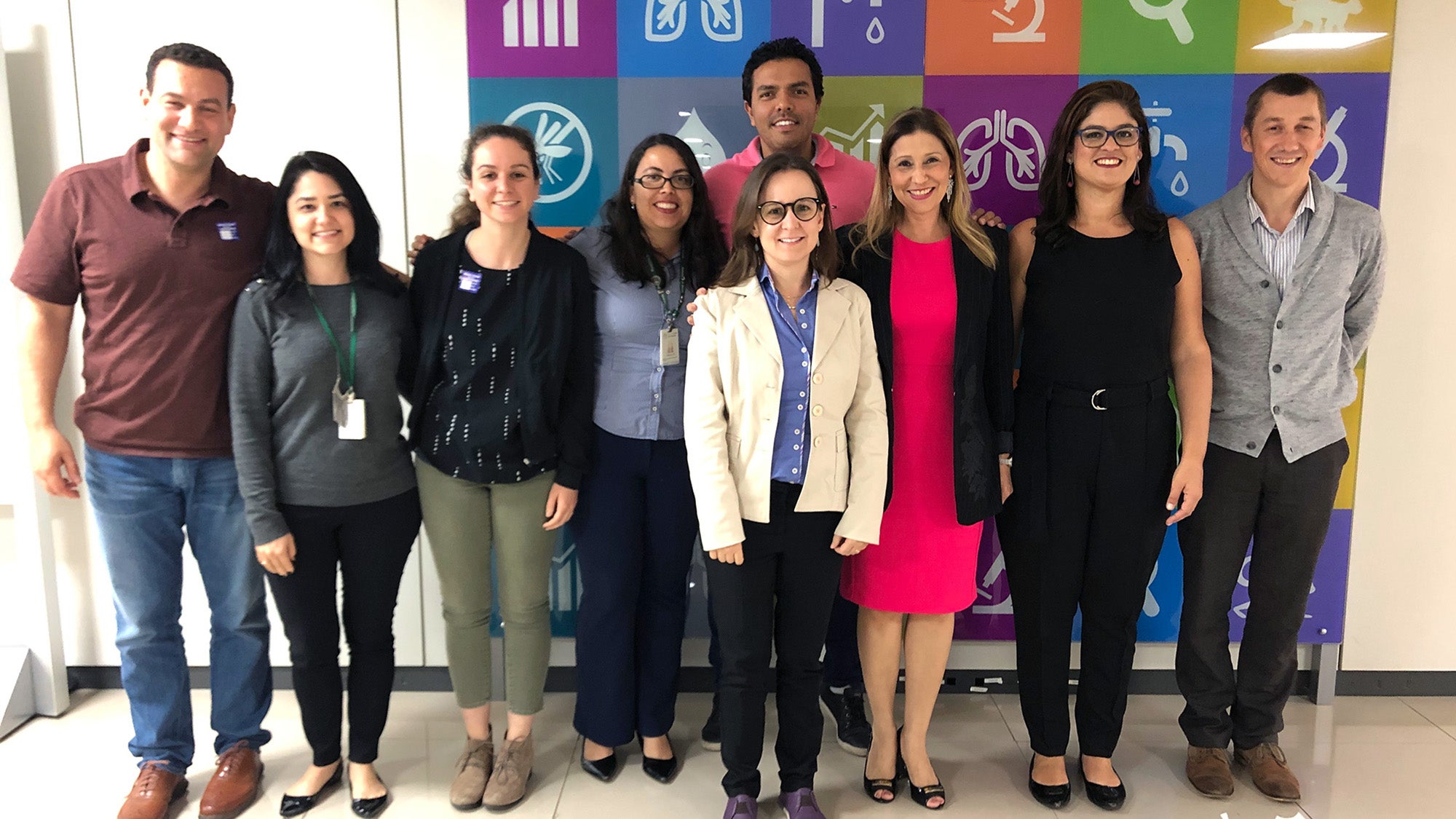Cocina Creativa y Saludable: Revitalizing Traditional Dishes for a Healthier Ecuador
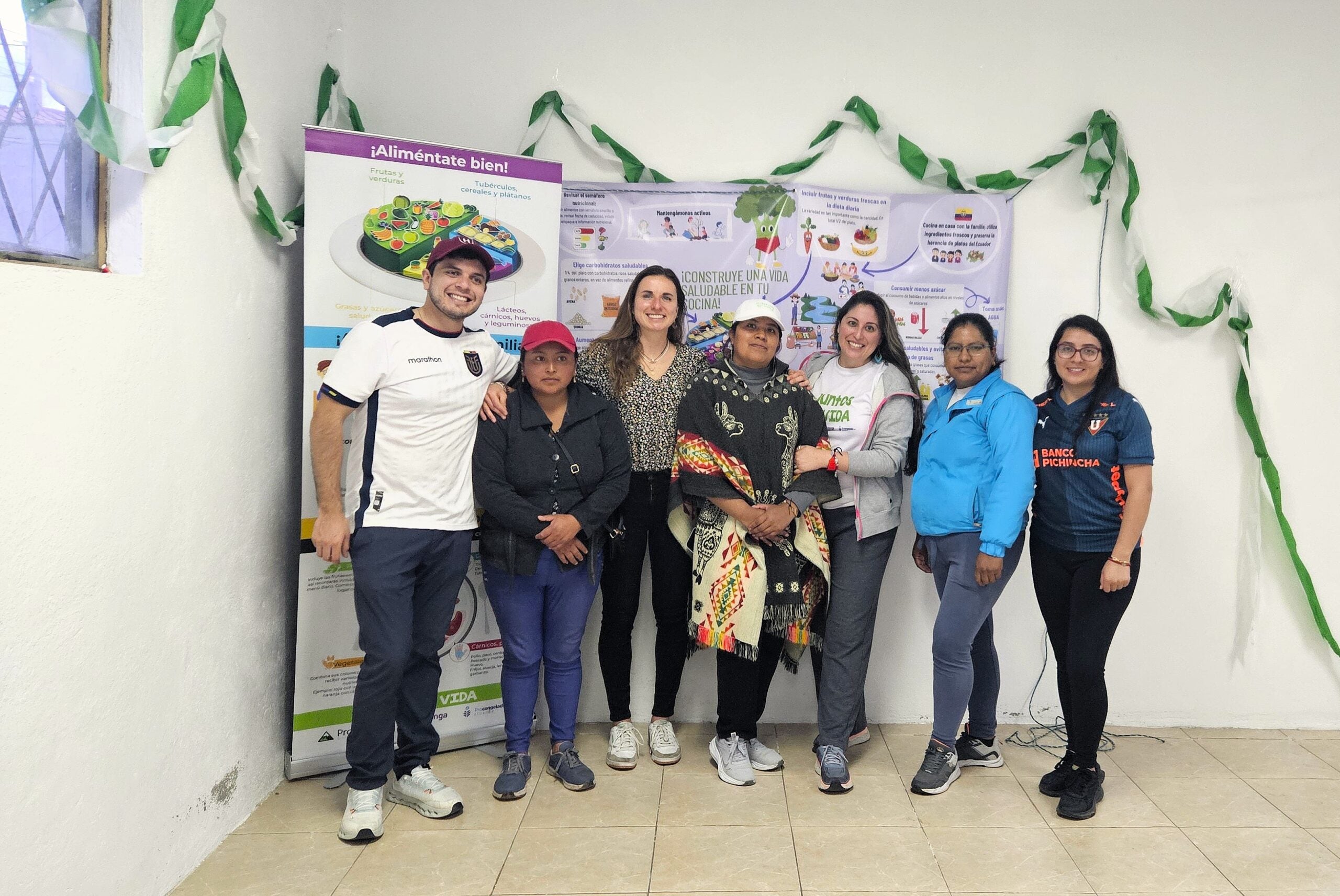
Miriam Krimmer is a Rose Service Learning Fellow and a Master of Public Health candidate in Health Management
The aroma of Ecuadorian food during one of our workshops took me back to my grandparents’ cozy kitchen in Germany. My grandmother’s traditional meals taught me early the connection between nutrition, culture, and health. This became even more relevant as I became a doctor. Working in the department of cardiology, witnessing the loss of many patients, I faced the truth that cardiovascular diseases are the world’s leading cause of death and that healthy lifestyle choices are key in prevention. Earlier in my medical career, when I volunteered in Ecuador, I realized that limited healthcare resources made prevention not just a priority but a necessity. The Ecuadorian flavors made me wonder—could traditional foods promote prevention?
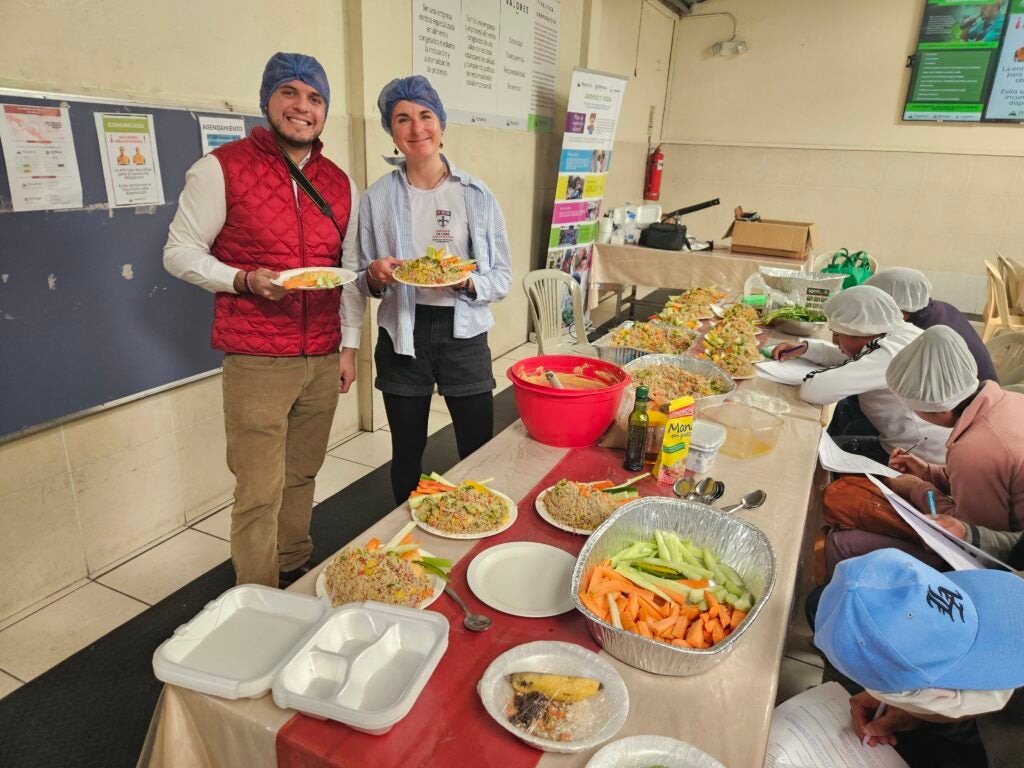
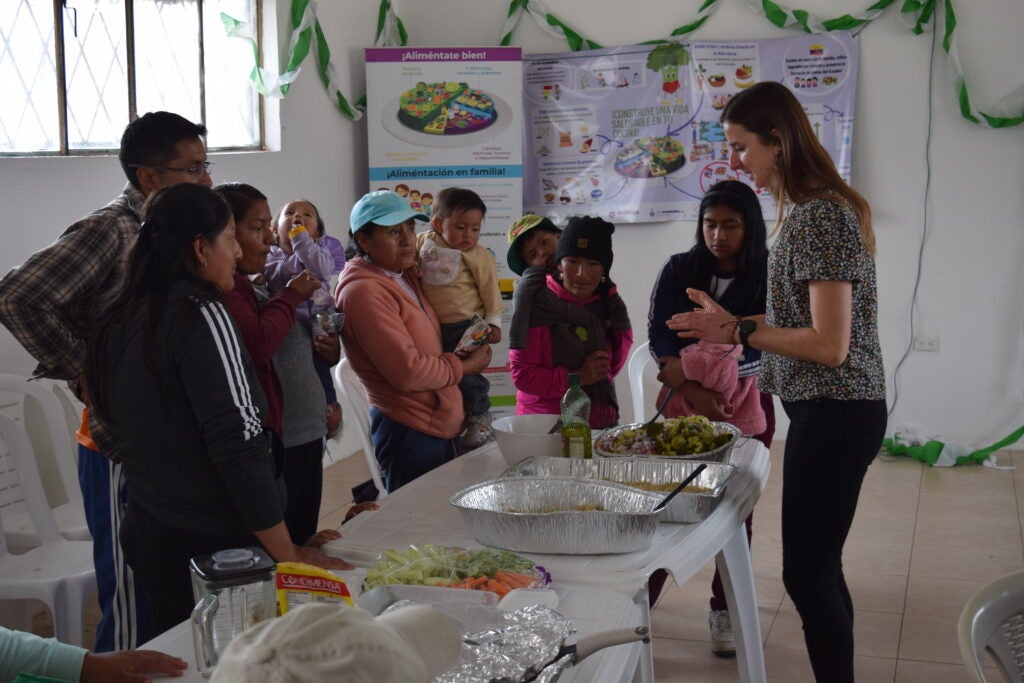
Understanding Ecuador’s Health and Nutrition Challenges
NCDs remain the leading cause of death worldwide, significantly affecting low and middle-income countries like Ecuador. In these communities, there is a dual nutritional challenge: undernutrition in impoverished areas and rising obesity in urban settings. Especially obesity is worsened by a shift from traditional diets to Westernized fast-food habits. Unhealthy dietary patterns, a lack of nutritional education and physical inactivity, contribute to the increasing prevalence of NCDs, emphasizing the need for prevention.
My commitment to NCD prevention has followed me throughout my career, from my time as a medical professional to my recent studies at Harvard T.H. Chan School of Public Health, where I met former Rose Fellow Francisco Alvarez. Together with his NGO, Asiri Health Arts (AHA) and support from the Rose Service Learning Fellowship, we launched “Cocina Creativa y Saludable”. This initiative blends Ecuador’s culinary heritage with innovative learning to prevent NCDs and promote healthier lifestyles. AHA has successfully adopted an artful approach in mental health initiatives, which we wanted to translate to this project.
Building partnerships, trust, community
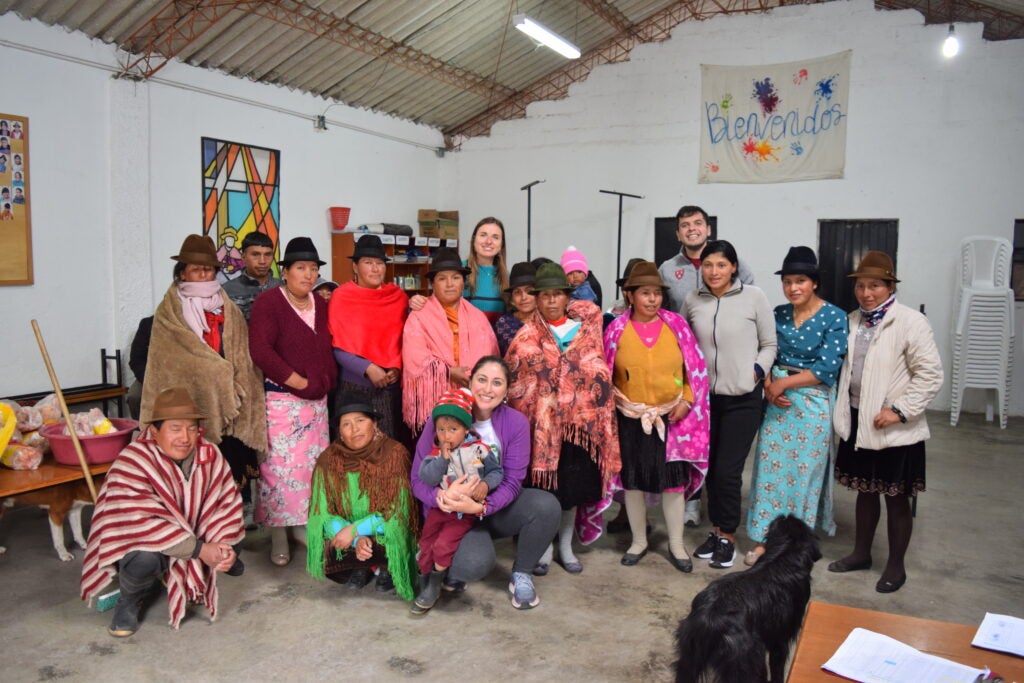
To implement the project, we partnered with vegetable exporter Provefrut, and “Juntos por la Vida“, a comprehensive community program. By leveraging community trust, we dramatically expanded our reach into rural and semi-urban areas like Guangaje, Guaytacama, and Latacunga. With our incredible partnerships, we conducted over 12 workshops with more than 250 community members.
Our journey’s true beauty was reflected in the trust and acceptance we received from communities, evident in the warm welcome rituals.
The workshops became vibrant community events beyond cooking classes. We engaged mothers, children, and fathers with a multigenerational, art-based learning approach. We started with key nutritional education, focusing on ten memorable messages about healthy lifestyles and chronic diseases. In rural Guangaje, content was translated into Quichua. Francisco and the team used art to engage children, allowing mothers to focus on learning. Workshops concluded with preparing colorful meals using Ecuadorian ingredients, emphasizing balanced dishes. Participants loved my new muesli snack, a nutritious alternative to sweets for children. Each event ended with a communal meal, encouraging sharing, dialogue, and healthy choices.
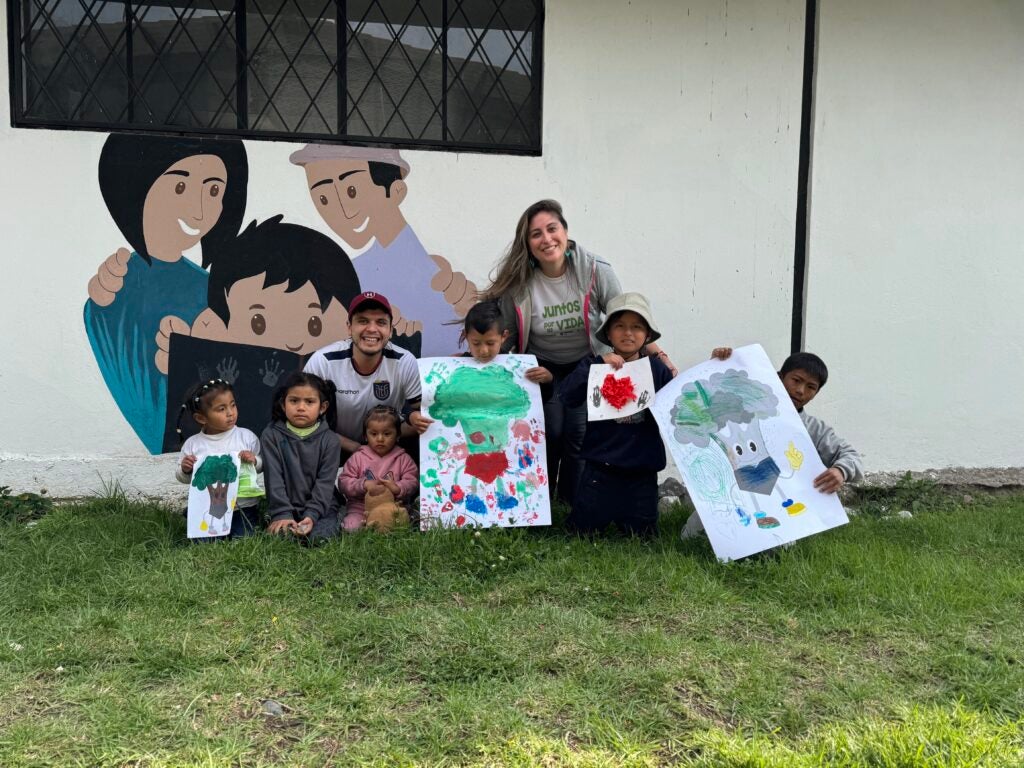
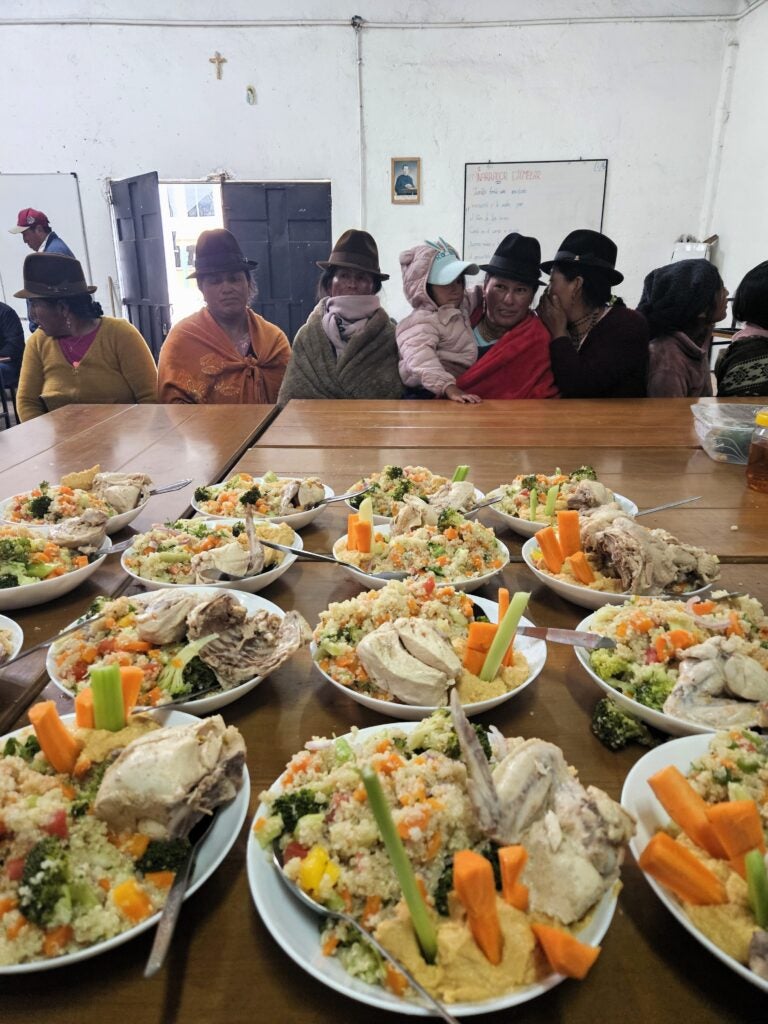
Workshops in Quito
In Quito, we adapted our prevention approach by engaging children through art. In collaboration with NDH (Neuro Diseño Humano) and art therapist Marilo, we led an art-based workshop for kids aged 8-11, exploring nutrition by creating mandalas. This encouraged interactive and mindful learning through touching and playing with food. We integrated education seamlessly by cooking a healthier “Cevichocho,” showing the fun in healthy nutrition. The children were fully engaged, asking questions and learning throughout, using our snack recipe to make nutritious cookies.
Additionally, we visited the private school “APCh” and gave a talk on healthy nutrition and prevention to approximately 180-200 students. The students were engaged and curious, interviewing us afterward for their school newspaper, to spread nutritional awareness within their community.
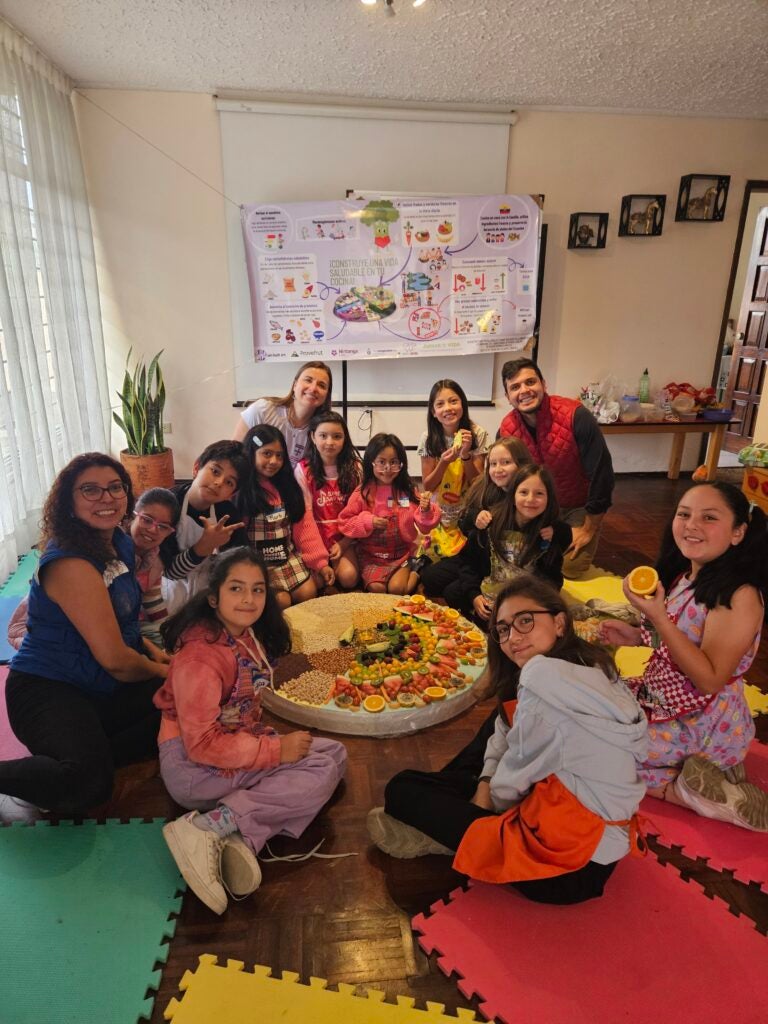
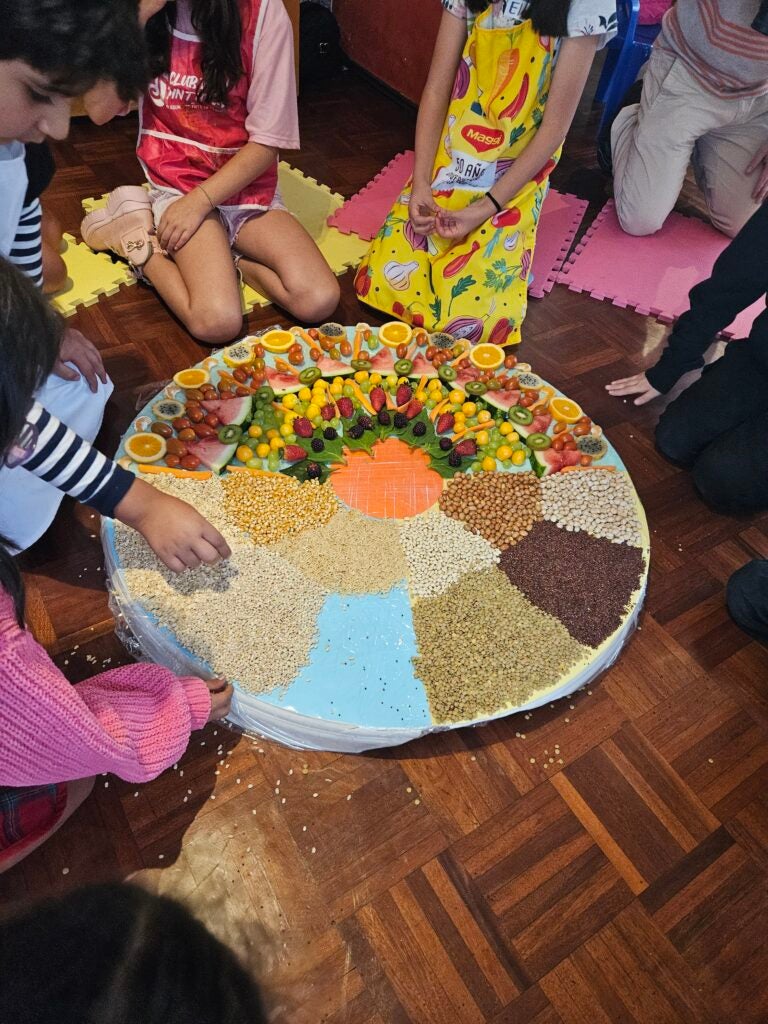
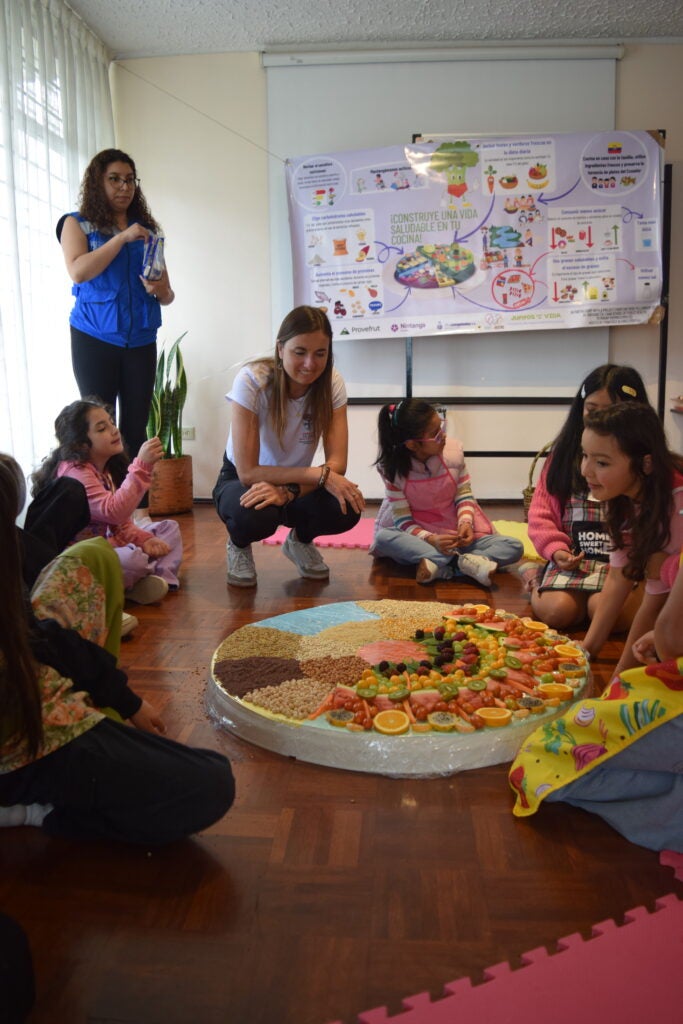
Learning Experience
It’s been over a month since I returned, yet the reflections and insights from Ecuador continue to evolve in my mind, the depth and richness of what I encountered is beyond words.
True community impact involves working with and in the community, but more importantly, being part of it. Trust and genuine care are where real change begins. The warmth and dedication of those I met were profound takeaways.
My view on implementing community projects has transformed; it’s not about having the perfect plan, but collaborating with the people, asking questions, and adapting to the community’s needs. Flexibility, curiosity, and humility are essential. The reality in the field often diverges from plans, requiring resilience, adaptability and openness. Remarkably, resources appear from unexpected places, with mothers and residents uniting to bring this project to life. Cultural differences taught me that assumptions mislead. Things as simple as distributing a survey become complex when language and literacy barriers exist, underscoring the importance of cultural sensitivity.
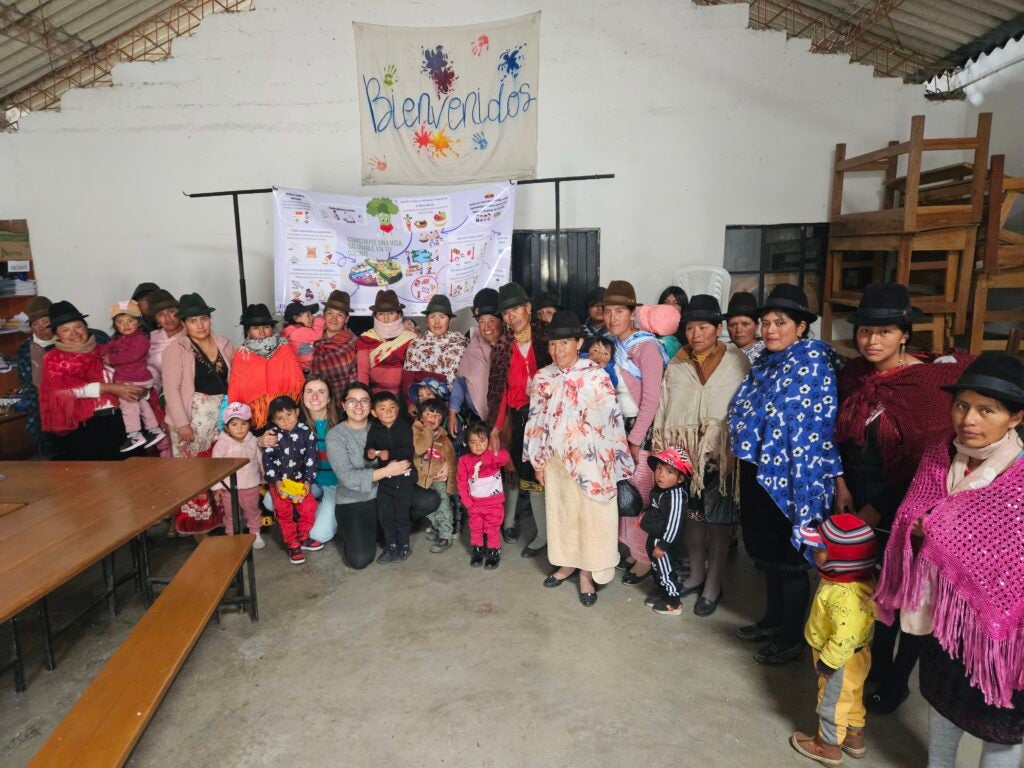
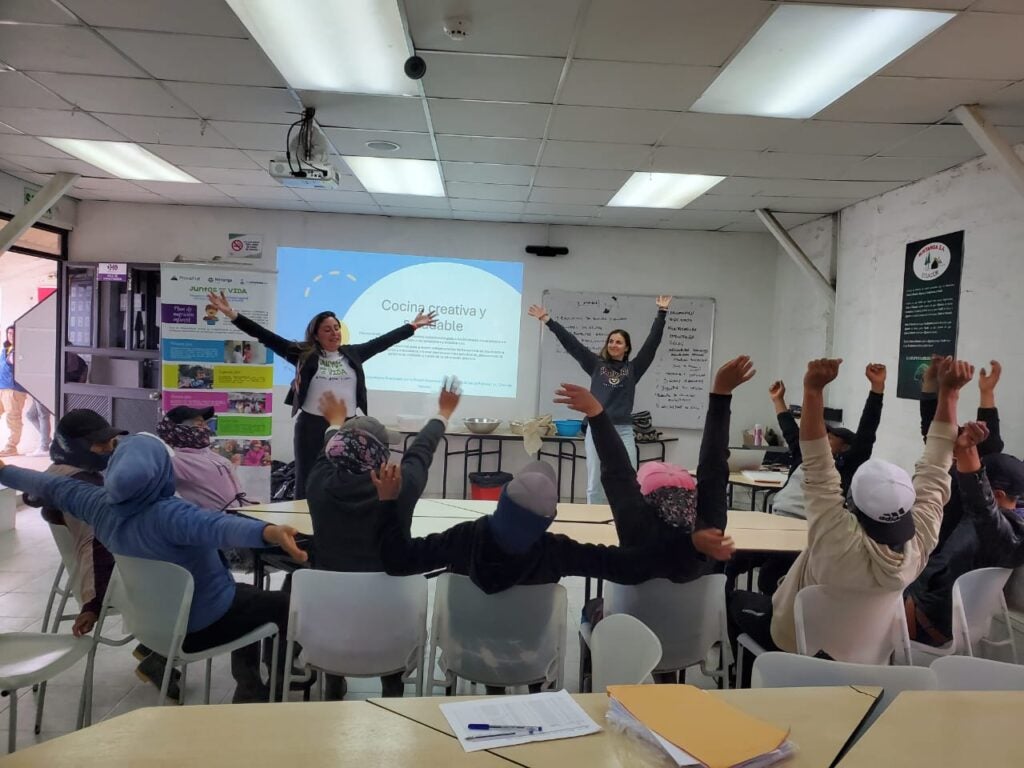
Road Ahead – For Sustained and Lasting Impact
While community work often focuses on outcomes, the impact on me and our team was profound. The immediate trust, vulnerability and willingness to share were invaluable. The project symbolizes genuine partnership, creating a collaborative space rather than just new ideas. It ensures sustained dialogue and learning. Our artistic recipe books, featuring new and redesigned traditional recipes, drawings, and photos, will serve as reminders of nutrition, culture, and this beautiful project. This experience in Ecuador will forever influence my public health approach. As much as I have given, I have received tenfold in wisdom, kindness, and insight. Gracias, Ecuador, for teaching resilience, sharing community, and the limitless potential of collective purpose.
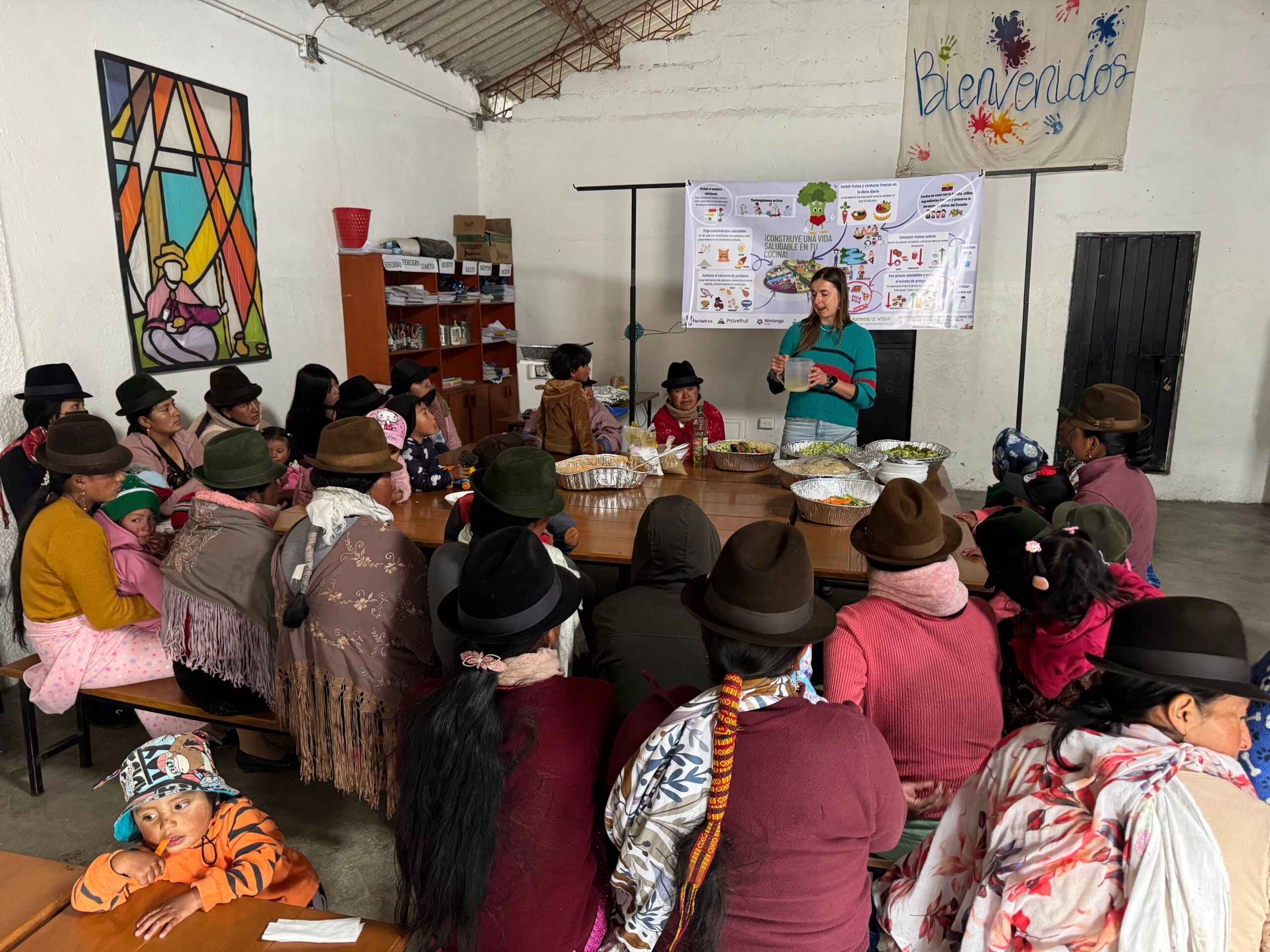
The JUNTOS POR LA VIDA PROGRAM, funded by the consortium of companies Provefrut, Nintanga, and Procongelados and executed by the Fundación Redes con Rostro, has been working since September 2021 to build lasting partnerships for work and growth with communities. Its main goal is to share knowledge and join efforts to combat and prevent child malnutrition by applying close-accompaniment methodologies for children under 3 years old, mothers, and pregnant women, providing workshops, personalized counseling, and health brigades. Coordinating and collaborating on joint actions for the benefit of the children in Cotopaxi has been a fundamental pillar. Engaging with stakeholders has been key to strengthening the implemented methodology; in this regard, the live cooking sessions with Asiri Health Arts not only benefited 243 families, 255 children, and 10 pregnant women in the Cotopaxi province but also served as spaces for dialogue and collective learning

